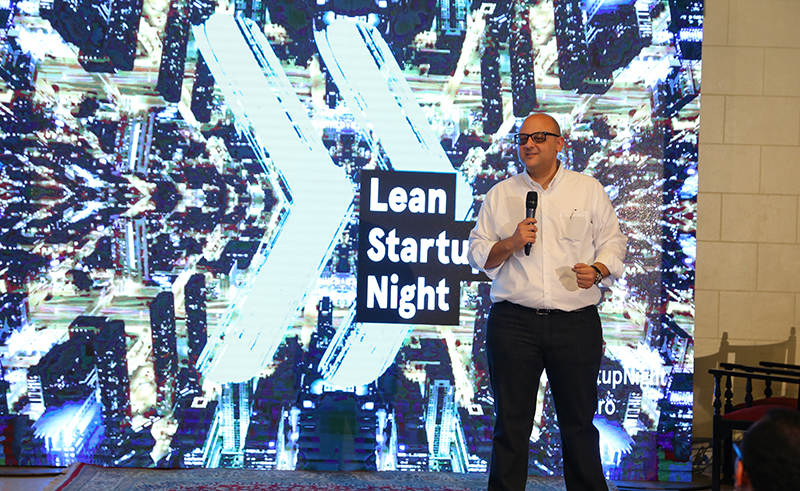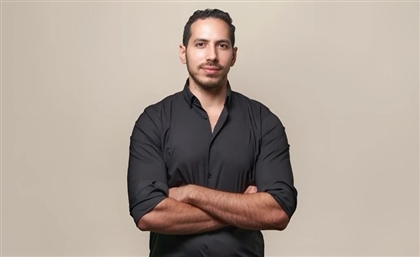Go Lean or Go Home? A Look at the MENA's First Lean Startup Night
As the first Lean Startup Night took off in Cairo, we ask its MENA ambassador Hani Naguib and AUC VLab's Ayman Ismail about its importance for startups in the region.

Currently based in Berlin, Robbert Van Geldrop is a software developer who founded BackupAgent, a cloud backup company that was sold to Acronis. It was the Dutch entrepreneur who spearheaded one of the first Lean Startup meetups back in 2010 in the Netherlands; an event that evolved into annual Lean Startup Nights, that landed in the heart of Cairo last July 10th. Lean Startup is a methodology for developing businesses and products established by Eric Ries. His book, The Lean Startup, has become a must-read for entrepreneurs and has been translated into 30 languages around the world, becoming a New York Times best seller in 2011.
"Many things that entrepreneurs do are highly counterintuitive to what you would expect would be the right behaviour," says the Dutch entrepreneur, giving skiing as an example; "the first time you go skiing, you feel like you’re going downhill and it’s scary to do that, and the intuitive thing is to actually lean upwards," he starts. "However, that actually makes you fall. That analogy helps me and others understand that by nature you have wrong mindsets towards entrepreneurship because how success is created for entrepreneurs is not intuitive."
Influenced by his eight-year mentorship experience alongside his work with Lean Startup, Geldrop finds that intuition versus misconceptions is the hardest part of his work. Teaching entrepreneurs how to be successful and about the entrepreneurial skills they need in order to be successful is quite a challenge. "Lots of people believe that the product comes first because if you go to a customer without a product you're wasting their time," Geldrop says, giving an example of a misconception he meets while mentoring.
"You can actually engage with customers without having a working product, and you actually should do that. You should pick up a conversation around their problem, their context, and basically how you can help them fix their issues or realise their dreams or whatever it is you intend to service them with," he elaborates, explaining that this discussion would help entrepreneurs understand the values of the products they're building, and avoid building a product that consumers don't want.

"Discover all the problems, create a minimal viable business model and product. Go from there, one step at a time. You got your learning experiences, and your learning curve will help you get there faster and cheaper and with less red tape.”
At the region's first Lean Startup Night, we spoke with Hani Naguib, Lean Startup ambassador in the Middle East and Africa. "From working with over 300 startups in the past few years and training around 1,000 entrepreneurs, I can say that entrepreneurs are not only looking for something more concrete or a methodology, but also a mindset that will help them achieve better results," he tells Startup Scene after his engaging presentation about evidence-based entrepreneurship.
Young entrepreneurs have been introduced to this concept revolving around this idea: "Build your company, go for it," Naguib mimics. This "cowboy" mentality was doing very well in the beginning, with all its glamour on board. "However, the result is just money spent in the ecosystem. And what do we have to show in return for this money? Less successful startups and more lifestyle entrepreneurs, that's it," he says. "We need to push back, we need something that is relevant, something that is coming directly from the source. Lean Startup offers that."
You can actually engage with customers without having a working product, and you actually should do that. You should pick up a conversation around their problem, their context, and basically how you can help them fix their problems.
Naguib is an evidence-based-entrepreneurship advocate, running Novus, a specialized innovation consultancy and entrepreneurship training company. Based in Cairo, Egypt, he applies the unique combination of design's holistic view and business rationale to guide organisations and startups create customer centric business model innovations - which all have brought him to work with Lean Startup as a bridge between its philosophy and the startups he provides mentorship to, through Novus.
"What we are trying to do with Novus is to spread the mindset and the concepts before the tools," he continues. "We don't want people to just use tools, we want people to think, and think with the tools; there’s a huge difference," he says, explaining that Lean Startup's methodology is meant to get people to think in an iterative way, not in a linear way. "Success in your startup is not merely getting funded, success is when you get closer and closer to achieving a good solution for you customer. A solution that will actually give them progress in their lives. This is what we are trying to do; provide the latest information, concepts, mindsets, on everything."

Startup Scene's Editor-in-Chief Valentina Primo moderates a panel discussion with Ayman Ismail about sustainable startup growth and innovation.
Moving to real problems in the Middle Eastern ecosystem, Naguib tells us how would a Lean Startup student ideally deal with bureaucracy. "Anywhere you go in the world, there is always going to be some sort of bureaucratic monster. I was just in Germany and we were talking with a lot of people from emerging ecosystems. We were having this discussion, and we suddenly discovered that we were all facing the same problems, but on a different scale," he says. "Among those problems were red tape and bureaucracy, which are two things that do exist, and need to be faced."
When entrepreneurs deal with unpleasant surprises and unexpected bureaucracy, Naguib recommends that founders find a good lawyer, a good accountant, and let them deal with such matters. "As for the founders themselves, I'd tell them focus on your customers, focus on innovating, on competing, and achieving progress. As long as you are aware of it and its predictable, its fine. The problem is with unpredictability."
Success in your startup is not merely getting funded, success is when you get closer and closer to achieving a good solution for you customer. A solution that will actually give them progress in their lives.
Entrepreneurs can learn all this if they follow the evidence-based entrepreneurship approach, by taking a very iterative approach as well as using many tests in the beginning. The evidence-based approach Naguib spoke about in his presentation teaches entrepreneurs about all the hurdles before even paying or investing money in the inception stages of building ventures. He argues that it's much better than the approach of 'let's build a company, and the funds shall come with it' - and then discover all the problems that actually come with it.
"Discover all the problems, create a minimal viable business model and product. Go from there, one step at a time. You got your learning experiences, and your learning curve will help you get there faster and cheaper and with less red tape,” he concludes.
AUC VLab's Ayman Ismail joined Startup Scene's Editor-in-Chief Valentina Primo in a panel where they discussed sustainable growth and innovation before opening the floor for questions from the concerned CEOs and founders.

"Lean Startup is a mindset," Ismail tells Startup Scene. "When they come up with an idea, many of the entrepreneurs and startups say 'let me design my model and then let me go to market.' By doing so, they are going to market with something that is not validated, it is not a validated idea, and neither are its elements," he argues.
Walking us through the process or "mindset" of Lean Startup, Ismail explains that it's about taking one's initial design and thinking of it as a hypothesis; then trying to validate its different elements through a set of experiments, tests, and ideas. "Then when the right time comes, and you go to market, you would actually have something that is more validated," he says.
By that time, this product or service would have become a model that is evolving, that has evolved, that has been tested by customers, and has been tested by the market. Lean Startup is a mindset in the sense that one goes to the market and continues to do so, continues developing the product, continues listening to the customer, continues tweaking the different features of that product or service. "That is what introduces new innovation to what you're doing, what keeps you continuously relevant, and it is what keeps you continuously competitive in the market," he concludes.
Main Image: Hani Naguib, giving the opening speech to MENA's first Lean Startup Night.
Photography by @MO4Network's #MO4Productions.
Photographer: Sherif Abdel Azim.






















